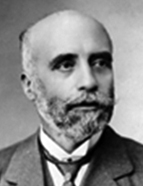

In Leite de Vasconcelos, a line of work connecting the progress of science and its direct application to the development of society and better living conditions is not visible, at least not in the form of an agenda. His notes criticising the contemporary social organisation were more indicative of a conservative than a protester: «When a people has fallen into decadence, due to the foolishness of its subjects or general and historical conditions, as has ours, those who love the land where they were born may at least be allowed to evade the misery of the present by considering and studying things of the past» (Religiões da Lusitânia, 1897, p. VIII).
In the long process of founding and establishing the Museu de Etnologia (1893-1906), a good relationship with both the ministries and the bureaucratic structure was evident – an example of this was the support of Bernardino Machado. He became part of the new Republican order and managed to secure a teaching position at the new Universidade de Lisboa. Despite an inquiry into accusations of his autocratic management in the last years of the monarchy, he continued as director of the Museum. In his defence he stated that «no one is more respectful than I am of the powers that be» (Defensão [Defence], 1913: 37).
In Portugal, Leite de Vasconcelos was a member of the Sociedade de Geografia [Geographical Society of Lisbon] (1890), where he was head of the field of ethnography from 1900 onwards. He was elected correspondent member of the Academia das Ciências de Lisboa in 1894 and full member in 1910. He held a seat in the Academia Portuguesa de História [Portuguese Academy of History] between 1937 and 1938, and it was, indeed, his affiliation with foreign associations that demonstrated his profile as an international scientist. The most important and long-lasting affiliations with foreign associations are listed as follows, with the respective date of admission: Société Suisse des Traditions Populaires (1896), the Istituto di Corrispondenza Archeologica (correspondent 1896, full member 1931), the Real Academia de la Historia de Madrid (1890), the Société d’Anthropologie de Paris (1899), the Academie royale d’Archeologie de Belgique (correspondent 1901), the Museum für volkskunde (correspondent 1909), the Société internationale de dialectologie romane (1909) the Hispanic Society of America (1904) and the Institut de France (1920).
Leite created a broad network of international contacts with whom he often exchanged information on the scientific areas that interested him.
